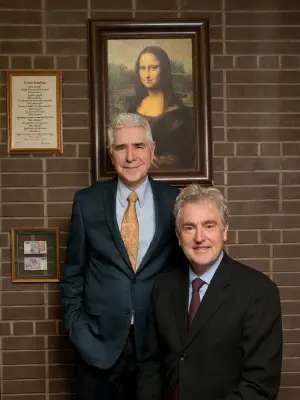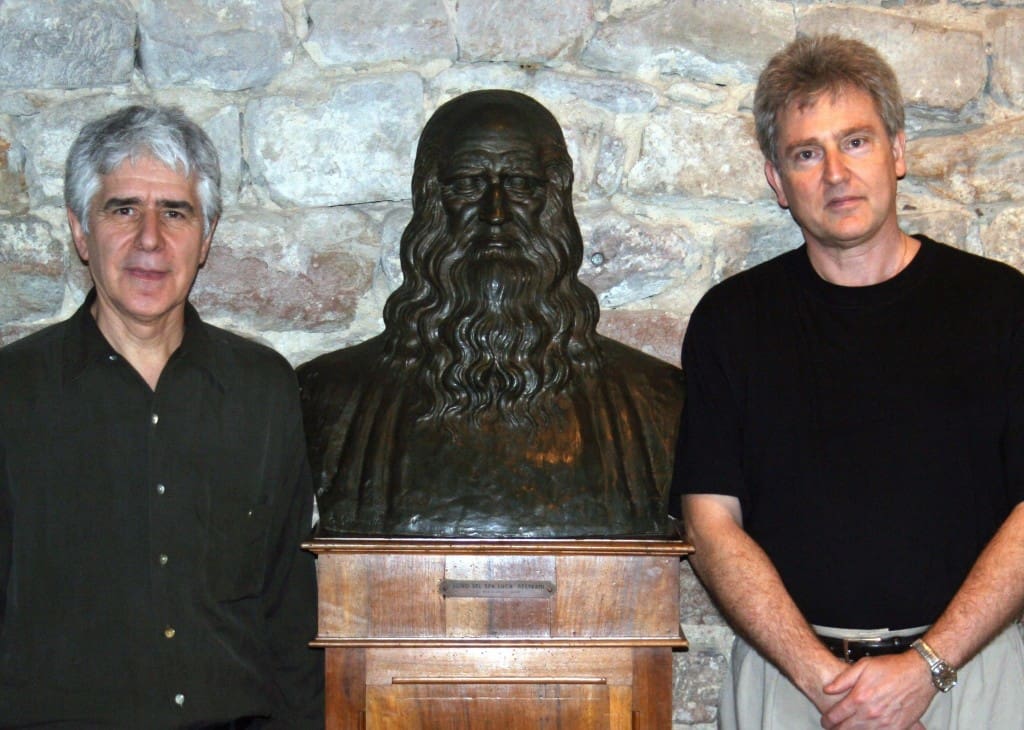Founders' Message
“The degree to which any philosophy of education is successfully implemented is readily measured – one need only observe the children. Children who have been encouraged to “Think Like Leonardo” are freed from “limitation” thinking and will have a healthy self-esteem and heightened respect for themselves and the world. They are joyful and autonomous participants in their own learning and self-discovery.”
– Sal Ritacca, B.Sc., B.Ed., Former Principal
Throughout history, it has been argued that the good of humanity is best served when formal education facilitates the development of the whole individual. To “know thyself” and “become who you are” have long been echoed as the ultimate purpose of education. This is not accomplished in isolation but within an existing cultural and social framework assimilating talents, heritage, and individual differences.
The derivative of the word “Academy” dates back to the 5th century B.C. At that time Plato founded his Academia where he taught students by posing challenging and searching questions. Plato’s Academy was a place where student and teacher worked toward a common goal – the search for truth and self-knowledge. The objective was to overcome myth and ignorance and embrace mystery through rigorous inquiry. The ultimate goal was to facilitate intellectual, moral, and physical development.
The Leonardo Da Vinci Academy’s mission is to inspire a love of learning and the self-discipline required in its pursuit. The ultimate goal is to nurture the growth of responsible individuals who are healthy in mind, spirit, and body and secure on the path to self-knowledge. The goal of self-knowledge demands that we nurture a “lifelong learner” approach to living – as exemplified by Leonardo himself. By encouraging students to learn from mistakes, these become important stepping stones to success. In this way problems become challenges and opportunities for growth. A student equipped with a constructive approach to failure is best prepared to realize his or her potential. By inspiring students to “Think Like Leonardo” they learn how to learn, a skill that will serve them throughout their lives.
A few years after its founding the Leonardo Da Vinci Academy adopted the teachings of Dr. Maria Montessori in its preschool and Lower Elementary grades. The Montessori methodology is in perfect harmony with the Academy’s “Thinking Like Leonardo” philosophy and a natural fit to the school’s educational vision .
Through a combination of a dedicated staff, discerning parents, and hard working students, LDVA is well on track of its stated mission. For over 35 years, the Leonardo Da Vinci Academy has been providing exceptional schooling for children in their formative years guided by a philosophy of education and life inspired by some of the greatest minds in history: Plato, St. Francis of Assisi, Leonardo Da Vinci, and Maria Montessori.
Through a combination of a dedicated staff, discerning parents, and hard working students, LDVA is well on track of its stated mission providing exceptional schooling for children in their formative years for over 36 years. Leonardo Da Vinci Academy’s approach to education, rooted in the reality of the analog world, helps to mitigate the harmful effects of the increasing exposure to digital screens on children born in modern times. The Academy’s educational philosophy provides a counter-balance to a world overwhelmed by ‘virtual realities’. It is inspired by some of the most influential minds in human history including: Plato, St. Francis of Assisi, Leonardo Da Vinci, and Maria Montessori.
Sal Ritacca and Dom Tassielli, Co-founders
Leonardo Da Vinci Academy of Arts & Sciences

